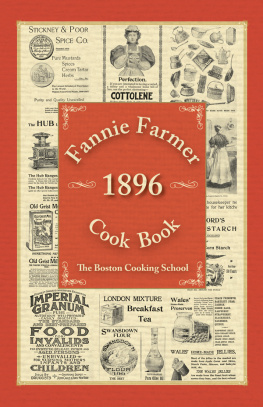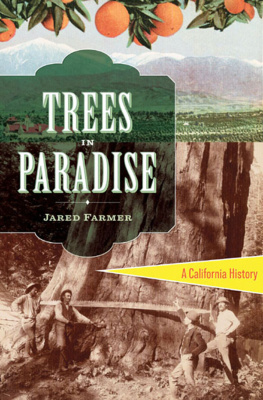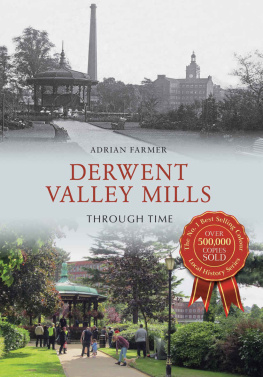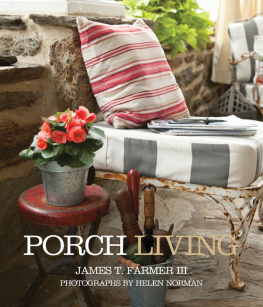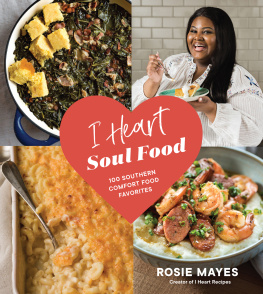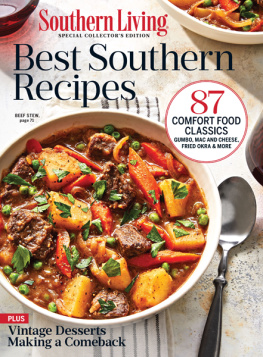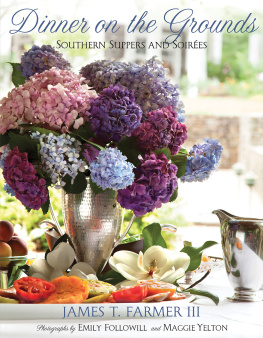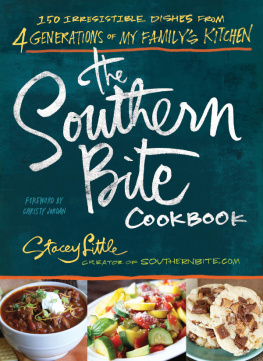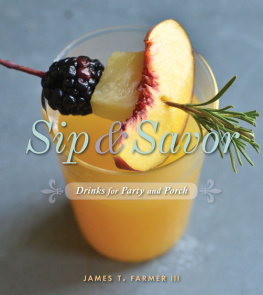A TIME TO COOK
Dishes from My Southern Sideboard
JAMES T. FARMER III
PHOTOGRAPHS BY HELEN NORMAN

A Time To Cook
Dishes from My Southern Sideboard
Digital Edition 1.0
Text 2013 James T. Farmer III
Photographs 2013 Helen Norman
All rights reserved. No part of this book may be reproduced by any means whatsoever without written permission from the publisher, except brief portions quoted for purpose of review.
Gibbs Smith
P.O. Box 667
Layton, Utah 84041
Orders: 1.800.835.4993
www.gibbs-smith.com
ISBN: 978-1-4236-3115-6
Dedicated to my family. Mama and Daddy never once told me to get out of the kitchen or gardenthank you. Maggie and Meredith, yall are always my first cheerleaders and taste-testers. Mimi and Granddaddy, you have taught me how to live and love greatlyand that is often best seen at your table. Aunt Kathy and Uncle Gerry, youre second parents, a test kitchen and a photo studiothank you!
You each mold and make me into who I am, and I am ever grateful. To my Mama, my Mimi, my Aunt Kathy, my Aunt Sally, Mrs. Mary, Lady, Susie, Sara Jo, Julie Farmer, and countless other Southern women and men who have allowed me to tug on your apron strings and learn how to not only to cook but to feed folks feed their bodies and, in turn, their soulsthanks and love yall!
Introduction
I can read a cookbook like a novel, flipping through and turning page after page with zeal and excitement, awaiting the next dish, recipe or interesting culinary combo. My favorites are usually the spiral-bound Ladies of Such and Such County or The So and So Sunday School Class Cookbook . Growing up in the highly Protestant Bible Belt of the Deep South, I have had a wealth of Sunday school and church cookbooks to perusemore so, I voraciously read and reread these literary delights and have somehow amassed quite a collection. I think it is because I cannot pass through a town, an antique store or book shop without a memento. These cookbooks are to me what paperback romance novels are to some others.
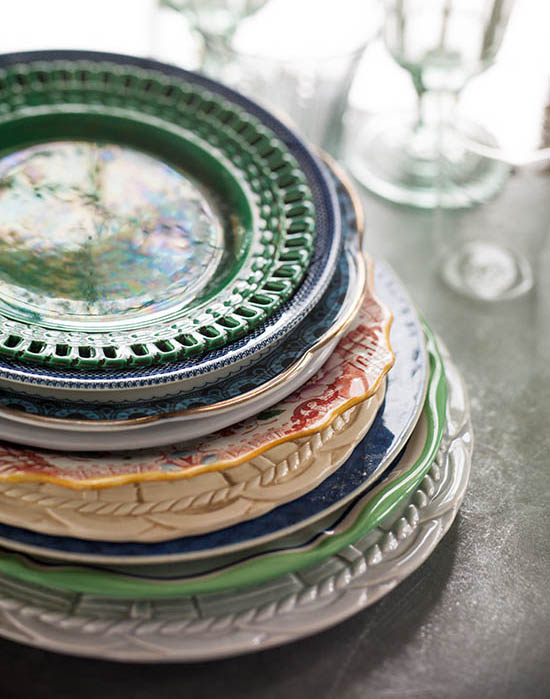
One cannot overlook the Junior League eitherthese women can write amazing cookbooks, and the names listed inside are second only to the Bible itself for sources of familiar Southern nomenclature. If you cannot find a suitable biblical name or if your son is not a III, IV, or V or both grandmothers maiden names have been used, then I am quite sure a Junior League cookbook can offer many a double-name delight for your new bundle of joy. In fact, referring to the Good Book and the Junior League in the same breath reminds me of the old and new testamentsJackson, Mississippis original and second versions of its Junior League cookbook, Southern Sideboards .
Baptist cookbooks are always laden with casseroles aplenty and dessert upon dessert (for Baptists actually eat at functions, i.e., dinner on the grounds, weddings, funerals, parties.) There is a caterer in my hometown that always asks her clients how many Baptists are coming to the party, as she knows to double the food if they are attending. Methodist and Presbyterian cookbooks are always classically delightful, graciously appointed with dainty finger foods, pick-up foods and tea sandwiches. The wine pairing for the meal can be seen as wellfor the latter denominations will actually speak to you in the liquor store; Baptists will not! Being a recovering Baptist myself, I was always enthralled by the other denominations culinary customs, and for Southerners, tasting other denominations foodstuffs is our way of becoming culturally astute.
As for the Episcopalians, their recipes are rich like they are, according to an anonymous Baptist I know. Game dishes, beef tenderloins, sauces and even cocktails can be found in their cookbooksrich food for the doctors, lawyers and really old money...; again, the anonymity of the person quoted shall be honored. This individual, or anyone for that matter, need not offend any denominations foodfor being outcast from any Episcopalian party (they have the best booze) or any small Southern town soiree would be a tragic loss and lead to quite an empty dance card, to boot!
To clarify this denomination debacle, the following Southern adage is applicable: Whether you are born, married or buried, Baptists will bring casseroles; Methodists and Presbyterians will bring well-rounded meals; and Episcopalians will bring a bottle of wine. If I have struck a chord with any of this, then welcome to the club, for we are all a part of a group taking full enjoyment, enchantment and even education from our houses of worships spiral-bound paperback kitchen stalwarts.

Photographed by James T. Farmer III
Owning your very own versions of these honored cookbooks is a rite of passage as well. Until you marry or give birth, you may have to wait until someone else is buried to receive your own treasured texts. These books are truly sacredpassed on and given with love from one generation to the next. Like my Mimi, I, too, cherish reading these cookbooks not only for the amusement of the recipes but for the namesthe links to our heritage. I know many a fine lady by her pound cake recipe or her deviled eggs. I know many of the ladies my grandmother grew up knowing through these cookbooks, and am thus connected to my ancestors and legacy through these books. Mimi grew up in South Georgia during the thirties and forties, and yet I cannot help but feel as though I did too. She has told me stories about her grandmother, her Big Mama, their friends and their homes. Though I was raised in Middle Georgia during the latter couple of decades of the twentieth century, my palate was cultured in the same manner as hersoften knowing not only the farmer or grower but the cook, the kitchen, the ladythe person herself. Knowing the person is the loveliest part. And in defense of my fellow gentlemen cooks, the ladies are not the only cooks in the Souththe best barbecue, grilling, whole hog roasting and even coconut cake I have ever tasted have been from the menfolk. Being connected to these people through their recipe repertoire is truly grand.
Whether you are served from their sideboard, a guest at their table, or merely acquainted through the pages of a cookbook, you are folded into their tradition of food. Food is our direct link to our past and the sustenance for our present and future. Recipes, dishes, silver and linens are passed down from generation to generation. They are passed down sometimes with chipped edges, tarnished handles, stained facades or maybe even in pristine condition; yet each and every imperfection is a perfect reminder of our heritage. Whatever your creed or culture, food is an integral part. High holidays and barbecues alike are laced and stitched together with the combinations of tradition and nostalgia, the tastes and smells of the seasons best, and the reassurance and comfort that food alone can bring.
Food is life. It is a probably the most enjoyable aspect for survival. We are so fortunate to live to eat rather than simply eating to live. I join the ranks of all those who love food, write about food, talk about it, dream about and plan what to eat or cook. Southerners, in particular, revolve their lives around food, planning our next menu while choosing from the one in our hands. We are known for our hospitality, and that is a direct correlation to our cooking. Truly, every tribe on earth has its own food; but Southern food is what I know best.




